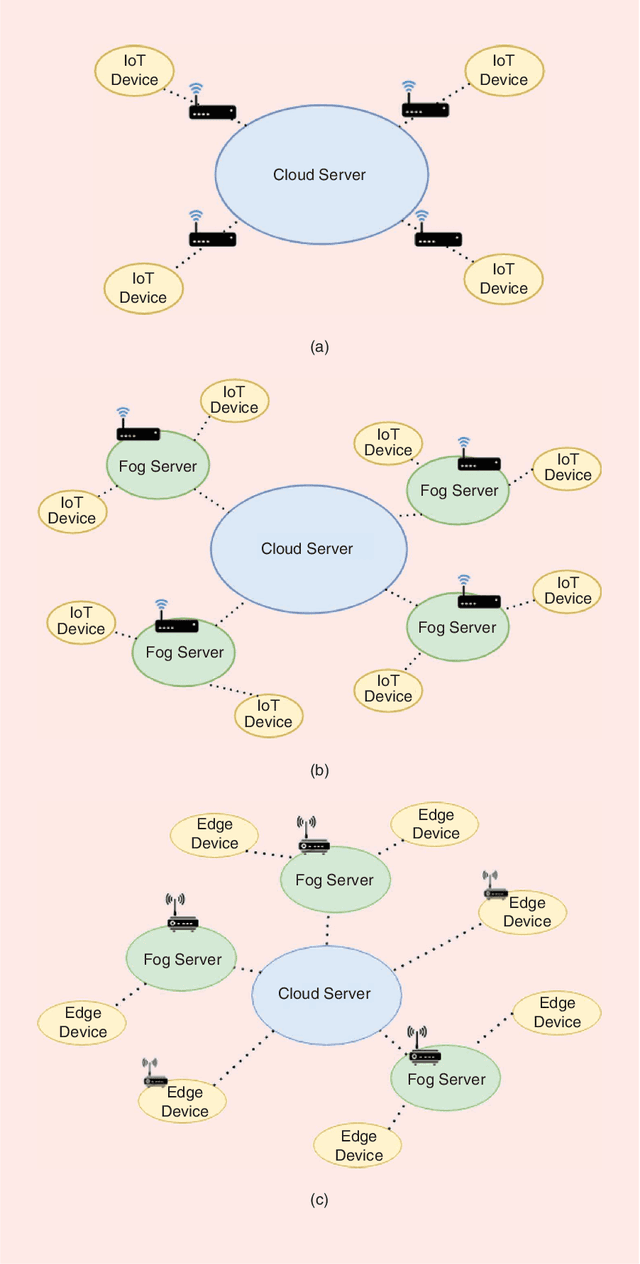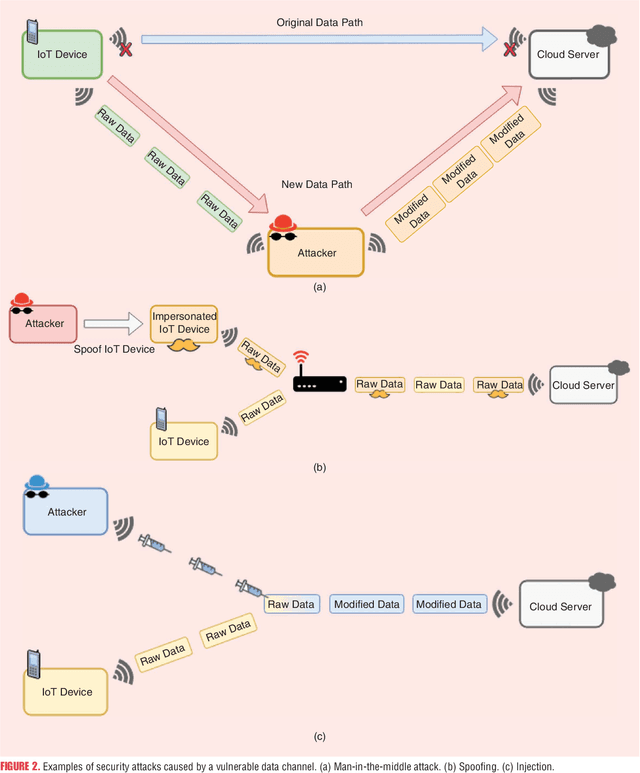Marc Jayson Baucas
Federated Kalman Filter for Secure IoT-based Device Monitoring Services
Apr 03, 2023Abstract:Device monitoring services have increased in popularity with the evolution of recent technology and the continuously increased number of Internet of Things (IoT) devices. Among the popular services are the ones that use device location information. However, these services run into privacy issues due to the nature of data collection and transmission. In this work, we introduce a platform incorporating Federated Kalman Filter (FKF) with a federated learning approach and private blockchain technology for privacy preservation. We analyze the accuracy of the proposed design against a standard Kalman Filter (KF) implementation of localization based on the Received Signal Strength Indicator (RSSI). The experimental results reveal significant potential for improved data estimation for RSSI-based localization in device monitoring.
Internet-of-Things Devices and Assistive Technologies for Healthcare: Applications, Challenges, and Opportunities
Jul 11, 2021



Abstract:Medical conditions and cases are growing at a rapid pace, where physical space is starting to be constrained. Hospitals and clinics no longer have the ability to accommodate large numbers of incoming patients. It is clear that the current state of the health industry needs to improve its valuable and limited resources. The evolution of the Internet of Things (IoT) devices along with assistive technologies can alleviate the problem in healthcare, by being a convenient and easy means of accessing healthcare services wirelessly. There is a plethora of IoT devices and potential applications that can take advantage of the unique characteristics that these technologies can offer. However, at the same time, these services pose novel challenges that need to be properly addressed. In this article, we review some popular categories of IoT-based applications for healthcare along with their devices. Then, we describe the challenges and discuss how research can properly address the open issues and improve the already existing implementations in healthcare. Further possible solutions are also discussed to show their potential in being viable solutions for future healthcare applications
 Add to Chrome
Add to Chrome Add to Firefox
Add to Firefox Add to Edge
Add to Edge